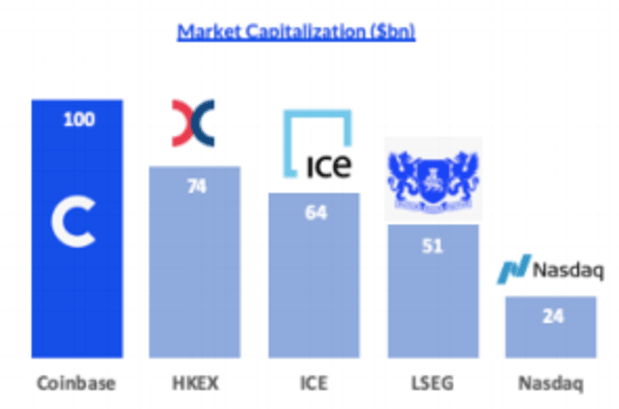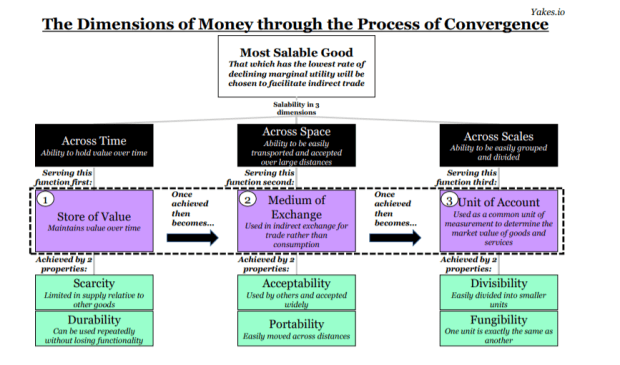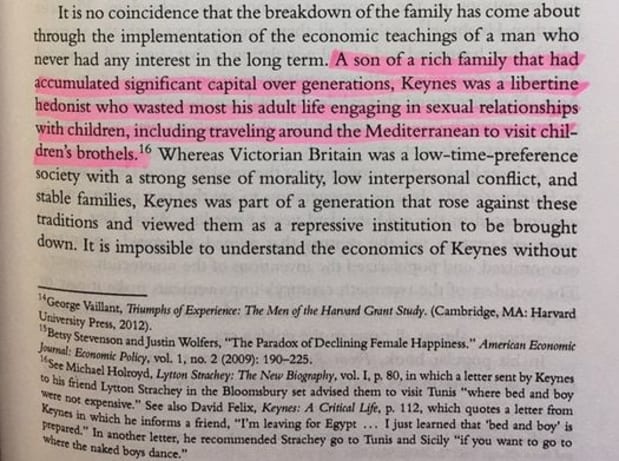Fiat Marriage — How High Time-Preference Led To The Breakdown Of The Family
The institution of marriage has suffered debasement as a result of a singular focus on “love,” a word that’s evolved in meaning.
This is an opinion editorial by Jimmy Song, a Bitcoin developer, educator and entrepreneur and programmer with over 20 years of experience.
Love has been debased.
Love used to refer to the virtue present in lasting, intimate relationships. Love required sacrifice, discipline and patience. Classical writers referred to love as a virtue precisely because it’s difficult. To paraphrase Apostle Paul, love is patient, kind, unenvious and humble. These are matters of character and they require tremendous internal work to get good at.
Nowadays, love refers to any strong feeling or desire, as in “I love ice cream” or “I love my job.” What used to be the highest of virtues has been relegated to describing the intensity of feelings. The word love has been debased more than a kids competition that gives out participation trophies.
Love as a concept has been debased, but this essay is not a screed on language. I can certainly rant about the meaninglessness of words, but I have bigger fish to fry. No, the thing I want to rant about in this article is what the word love points to. The debasement of love has had practical consequences for civilization in the institution of marriage.
No-Fault Divorce
In 1969, Ronald Reagan passed No-Fault Divorce into law as governor of California. The law was intended to reduce the bitterness around divorce. Before the law, there had to be grounds to end the contractual union. So if a wife wanted to leave her marriage prior to 1969, she needed to give some reason, like that the husband is physically abusive or that the husband is having an affair.
Of course, people being people, many wanted to leave a marriage without having grounds to break the contract. They made up fake reasons, assaulting the character of their spouses. Ronald Reagan’s first wife, for example, claimed mental cruelty as the reason she wanted a divorce. The law was meant to render unnecessary such false accusations. The idea was a lot like a parent’s policy of “I don’t care who started it” and punishing both kids in a fight regardless of the reason.
The law proved popular and every state in the U.S. adopted it, many within just a few years of the 1969 California law. Sadly, as with most government regulations, the results were as unintentionally horrific as a Disney Star Wars movie.
We can look back 53 years later, and confidently conclude that the law has not reduced bitterness in divorce but made it much worse. No-Fault Divorce hasn’t stopped false accusations, the assaults on character nor the general trauma of divorce. Divorce as an industry has thrived while marriage as an institution has been debased. What was it about this law that did the exact opposite of its intentions?
The first thing to understand about marriage is that at its heart, it’s a contract or a promise. The promise has historically been fidelity for life. This may sound overly restrictive, but the reason is obvious. Marriages are meant to be a stable environment to raise children. It’s difficult to create a stable environment if the parental union is unstable. The restrictiveness of marriage is a feature for the purposes of children, not a bug against personal happiness.
The second thing to understand about marriage is that historically, it existed outside government control. It’s only relatively recently that the government has regulated marriage. The main reason is historical, where authorities wanted to prevent interracial marriage. No-Fault Divorce was another in a long line of government regulations that had unintended consequences.
Every Marriage Is Open
Under No-Fault Divorce, either party can dissolve the contract without declaring fault. Marriage contracts cannot require fidelity since the punishment mechanism of divorce is available whether the partner cheats or not. As a result, there’s no legal reason for anyone to stay faithful, but the legal consequences of divorce still apply. Usually, this means whoever has the better lawyer gets the better proceeds from the dissolution of the union.
Marriage, in other words, is a very weak and undemanding contract, legally speaking. You literally cannot put into a marriage contract that you will be faithful to the other person. You can promise that, of course, but there are no legal consequences for breaking that promise. As far as the government is concerned, all marriages are open marriages. This is like giving diabetes patients the option of candy every meal.
Self-centered View Of Love
How did we get here? Isn’t faithfulness a major part of what defines a marriage? Is the idea of promising fidelity that tough?
In the past, most instability for families came from external circumstances, like war, plague or famine. Even with those external pressures, marriages managed to provide stable environments from which many children sprang forth. What’s unique about our current situation is that instability for families comes from internal circumstances. Around half of marriages end in divorce and fertility rates are at all time lows. Marriage, for many, is not about children at all.
Over the past 100 years or so, there’s been a profound shift in how we even think about marriage. If you talked to someone 100 years ago and asked about marriage, much of the values associated with it would be about duty to children and sacrifice for community and obligation to family. Talk to someone now about marriage and the conversation almost inevitably goes to love.
The contrast couldn’t be more stark. One is a community-centered view of marriage and the other is a self-centered view. We’ve all reverted to 7-year-olds, thinking communal things are all about us.
The L-word
Love is all you need. It’s not just a Beatles lyric, it’s what people actually believe. Of course, given how debased the word love has become, this is a deeply self-centered statement. For most people, the reason to get married is personal happiness. They want to experience strong feelings of love. Never mind that those feelings come as the result of the very commitment, sacrifice and responsibility that they largely ignore.
For many people, they want the results without putting in the work. This is a fiat mentality. They want to shoot like Steph Curry without any shooting practice.
Much like how focusing too much on unemployment brought about the idiocy of Keynesian economics, the focus on “love” to the exclusion of everything else has led to a debasement of marriage.
When people talk about “love,” they’re really talking about some internal state that they desire to have, and not the virtue. They want to be “in love” or have the emotional version of a sugar high. It’s profoundly self-centered, yet it’s the predominant paradigm for marriage. Marriage has become a path to personal happiness.
The traditional reason for marriage was to have children and start a family. This is at odds with the self-centered conception of marriage, especially if kids infringe on personal happiness.
No-Fault Divorce essentially blessed and legitimized the personal-happiness theory of marriage. It’s no wonder, then, that birth rates are cratering, that fewer families are being started and that motherhood is being made out to be some anachronism. Once happiness becomes the point, there’s little room for kids. Concepts like duty, order and sacrifice have little meaning under that paradigm.
Similarities Between Money And Marriage
No-Fault Divorce began in 1969 around the same time as the ending of gold convertibility in 1971. They both debased traditional institutions to the point where it wasn’t really recognizable anymore.
The Federal Reserve system of central banking is a way that confuses money with credit by pumping a lot of loans into the economy. Good money and bad money were given equal billing and that led to the debasement of the good money. Similarly, marriages based on traditional promises of fidelity and open marriages were given equal billing that led to the debasement of marriage as an institution.
Debasement also has led to a profound instability in both institutions. The dollar is no longer backed by gold. Marriage is no longer backed by promises of fidelity. Not having that backing has led to a volatility in how they’re treated. For the most part, both institutions continue to benefit from the stored reputation of the past, but going forward, they’ll get worse reputations as they continue getting debased. For most young people, both marriage and fiat money have much worse reputations than they do for older people.
Fiat Money
As usual, the debasement of marriage and the debasement of money are strongly related. Part of why the 1971 break with gold happened was due to the many social programs of the 1960’s. In particular, LBJ’s Great Society programs like Medicare and welfare put a lot of pressure on the dollar which led to the decision made in 1971. The U.S. was spending money it didn’t have because it was the global reserve currency.
The intention of these programs were to help put in a social safety net for the poor. The effect was that these entitlement programs became a replacement for marriages, families and communities. The No-Fault Divorce law was part of the same societal trend as the Great Society programs. They aimed to reduce conflict through money. Personal well-being became a government mandate with the advent of fiat money.
That trend of emphasizing personal happiness ultimately comes from the moral responsibility of the money printer. If the government can print money to solve some problem, it soon becomes a moral obligation. Marriage was a solution to the problem of raising children, but once the government started providing a safety net, it naturally debased marriage. This was only possible through fiat money printing.
Much like the debasement of money, the debasement of marriage hurt the poor the most. In particular, the debasement of marriage has devastated the black community. In 1950, a higher percentage of Black women were married than white women. The combination of social programs, the emphasis on individual happiness and the debasement of marriage contributed to the dissolution of Black families. The looseness with which the government held marriage became a reality for people that could least afford it.
Bitcoin Fixes This
I find it encouraging that so many people in the Bitcoin community are getting married. Once you get into Bitcoin, it’s hard not to have a long time horizon. Once you start being low time-preference with your money, it’s hard not to do the same in other things. Chief among long-term concerns is meaning and family, if anything, provides deep meaning. Low-time preference behavior leads to family. To start a family, you need to get married and indeed that’s what a lot of Bitcoiners do.
Note how different this is as a motivation versus the normal social mentality of making yourself happy. There’s room now for sacrifice, responsibility and commitment which really isn’t there in a personal happiness ethic. The traditional view of marriage is the low-time preference one.
Ancients would call low-time-preference behavior prudence or wisdom. It’s self-fulfilling, just on a longer time scale than the sugary drink of “love.” Bitcoin breaks us out of our narcissistic self-indulgence.
The Beatles were wrong. Love isn’t all you need.
Ten Things You Won’t Do for Love
- Put your phone away.
- Tolerate weight gain or unemployment in your partner.
- Uninstall Tinder.
- Sell your awesome MMORPG character on eBay.
- Deadlifts.
- Quit drinking.
- Have kids.
- A ketogenic diet for longer than a few months.
- Sit through a boring date.
- Save and get out of debt.
This is a guest post by Jimmy Song. Opinions expressed are entirely their own and do not necessarily reflect those of BTC Inc or Bitcoin Magazine.









